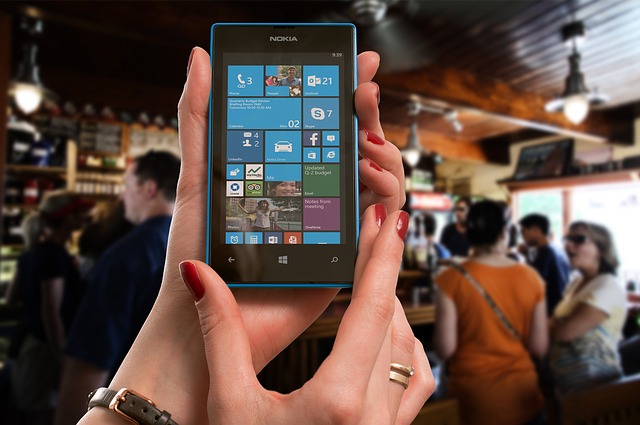Are You Getting Influencer Marketing Wrong?
The inception of digital technology changed the way we do a lot of things, and this change is most noticeable in the media industry. The way we effect brand awareness and customer acquisition has changed drastically in the past decade because of the rise of social media, which also gave rise to social influencers. The proliferation of these online mavens led to a rise of a “new” way of reaching customers: influencer marketing.
The effectiveness of influencer marketing is an undeniable fact supported by a positive consensus among marketers and CEOs as well as influencer marketing statistics. Most companies agree that it raises brand awareness, which means influencers are making people know about brands and businesses. Majority of marketers also believe that influencers increase customer loyalty.
If you’re not implementing an influencer marketing strategy, it’s probably because you’re like many PR companies and skeptics who don’t understand this old-new form of marketing. In fact, many companies that have implemented influencer marketing are operating under a false perception of what working with influencers mean. For example, several business owners have an inaccurate concept of influencer outreach. If you think, for instance, that influencer outreach only means networking, then you’re missing the big picture.
The common mistake is lumping influencers into one group. You may think celebrities and peer influencers are the same, because they influence people, but they are not. The influence the former wields is different from the latter. This is why strategies to win celebrities are not the same strategies you employ to win micro-influencers. There is a difference between popular people who can talk about anything and not so popular people who only talk about topics in a specific niche. The latter are the experts, advisers, consultants, and specialists, who probably don’t have following size as large as your popular celebrities. Influencer marketing statistics indicates that these people, despite their lesser reach, have higher engagement rates.
The misunderstanding also shows in how marketers understand the word influencer. Influencers are people with authorities in their niches. They have skills their peers don’t. They are able to influence their peers because the latter view them as sources of unbiased facts and truths and because they are not inclined to advertising, at least not overtly.
On an interpersonal level, influencers behave like their peers. They talk to them. They comment on their posts. They treat their followers like their friends. There are exceptions, but these are how they conduct themselves on social media. This organic rapport is why the relationship between a peer influencer is stronger than a celebrity’s relationship with her fans. It makes the former an effective marketing envoy to her followers.
Failure to understand and apply the relevance of organic relationships sabotages influencer marketing, or any form of marketing. Whether you’re building an empire and growing your social network or you’re targeting influencers, the necessity of connecting with people on an organic level is incontrovertible. Failure to realize this is failure of your influencer marketing altogether.
Creating networks entails building relationships. Connecting to build relationships starts with genuinely caring about what your audience say. The problem with many marketers using the old ways is to consider networking as a marketing scheme. It doesn’t work like that anymore, as people are smarter now. In influencer outreach, overt marketing with zero investment in interpersonal connection leads to your major downfall. When you initiate conversations because you want to push your business to the other person, you’re driving them away.
Because a business-oriented approach in influencer marketing treats people as means to gain revenue, it doesn’t result in meaningful relationships. Business-oriented networks tend to crumble after a while. If you approach influencers as a business person, you most likely will turn them off. It is extremely difficult to win niche experts and authorities over raw business dealings, unless they are business people themselves. These people don’t work with businesses at their expense. What drives business growth on social media is genuine connections.
PR companies and marketers stick to the business-oriented model in winning influencers over because that’s what they have been programmed to do. They think getting to these key people is the same as getting to celebrities, product endorsers, and advertisers. Dealing with these people for marketing is different from dealing with peer influencers. Celebrity endorsement and advertising are losing their steam. These practices stem from a tired concept that good influencer marketing agencies no longer resort to because they know consumers can read the signs of companies paying endorsers and advertisers to shove brands down their throats.

Influencer marketing companies look at long-term prospects. It doesn’t matter whether it’s an influencer marketing agency in Japan or in the United States. The principles are the same. Influencers, being largely consumers, prefer organic relationships, which are deeper and last longer. If the reason a journalist or blogger is working with you is because they are getting free products and services from you, then they’re only halfheartedly invested in your brand, if at all. Pull the plug on the goodies, and watch them break connections with you. The compensation-based relationship between brands and advertisers is its crucial weakness, a liability that influencer marketing effectively dodges.
Perhaps nothing is more glaring than the fact that many companies think influencer targeting is all about the numbers. Brands are always looking for the most famous people on social media, people with the highest number of followers. Numbers are useful, knowing what numbers to look at spells the difference between good and bad results. One of the reasons brands have turned to micro-influencers is their high engagement rates.
Eventually, you don’t want a short-term opportunity with an influencer. Companies put advertisers and product endorsers on their payroll for a period of time because they don’t want to look like their brand ambassadors are just dumping them after a few ads. They understand the effectiveness of pushing the message every once in a while to get to as many audiences as possible. The same is true with working with influencers. You have to look at long-term opportunities with them so that you can work together until your brand resonates with their audience, who then becomes your audience as well.








